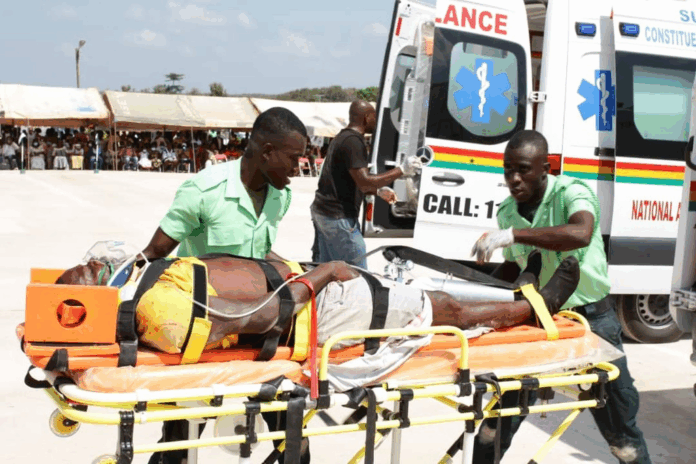In the critical moments following a disaster—a major road accident on the Accra–Kumasi highway, a building collapse in the heart of a city, or a devastating flood in a vulnerable community—the difference between life and death often hinges on one factor: coordination.
The swift, seamless collaboration of emergency services is not just best practice; it is the backbone of an effective national response system.
In Ghana, while we have dedicated and courageous personnel across various agencies, achieving true, life-saving interoperability remains a work in progress that demands urgent and sustained attention.
Ghana’s primary emergency responders—the Ghana National Fire Service (GNFS), the National Ambulance Service (NAS), the Ghana Police Service, and the National Disaster Management Organization (NADMO)—each have a crucial mandate.
The Fire Service secures scenes and combats blazes, the Ambulance Service provides pre-hospital care, the Police ensure law and order, and NADMO coordinates relief and recovery.
However, the absence of a deeply ingrained, unified command structure often leads to fragmented responses. The consequences are all too familiar: delays in victim extraction and treatment, communication breakdowns, duplication of efforts, and ultimately, reduced efficiency in saving lives.
Key Challenges
-
Communication Incompatibility: Different agencies operate on separate radio frequencies, making real-time cross-agency communication nearly impossible. For example, an ambulance crew cannot instantly alert a fire team to a new hazard, and police may struggle to quickly request medical support.
-
Emergency Number Confusion: Although progress has been made with the toll-free 112 number, public awareness remains limited. Many citizens still call the specific service they are most familiar with, rather than a central dispatch capable of mobilising all resources simultaneously.
-
Lack of Joint Training: While individual services train their personnel to high standards, joint drills and inter-agency simulations are not yet institutionalised. Without these, responders miss the chance to understand one another’s protocols and build the trust essential for smooth collaboration.
-
Jurisdictional Tensions: Ambiguities around resource allocation and authority at major incidents can create friction, wasting precious time and sometimes endangering both responders and victims.
The Way Forward
Solutions must be systemic, proactive, and collaborative:
-
Implement a Unified Command System (UCS): Ghana must adopt and institutionalise the Incident Command System (ICS) or a similar model, providing a clear, scalable chain of command across all agencies.
-
Invest in Interoperable Communication: A secure, digital trunked radio network for all emergency services would be the single greatest enabler of coordination.
-
Mandate Joint Training and Exercises: Large-scale, multi-agency drills—ranging from table-top exercises to full-scale disaster simulations—must become an annual requirement.
-
Strengthen Public Awareness of 112: A nationwide education campaign is vital so that citizens know to dial 112 as the single point of contact to trigger a coordinated response.
-
Establish a National Emergency Response Policy: A legally backed framework passed by Parliament would formalise roles, coordination mechanisms, and funding, ensuring consistency and sustainability.
The brave men and women of Ghana’s emergency services stand ready to risk their lives for their fellow citizens. They deserve a system that empowers them to act with maximum efficiency and support.
By prioritising coordination, we are not only streamlining processes but also honouring their sacrifice and—most importantly—saving lives.
Let us build a response network where every unit moves as one, ensuring that when disaster strikes, the people of Ghana are protected by a truly unified front.
By: Evans Austin Brew, Stephen Kwame Quansah, Sophia Aku Etsa Anku, Kriss Samuel Tekutey & Emmanuel Clement Quist



